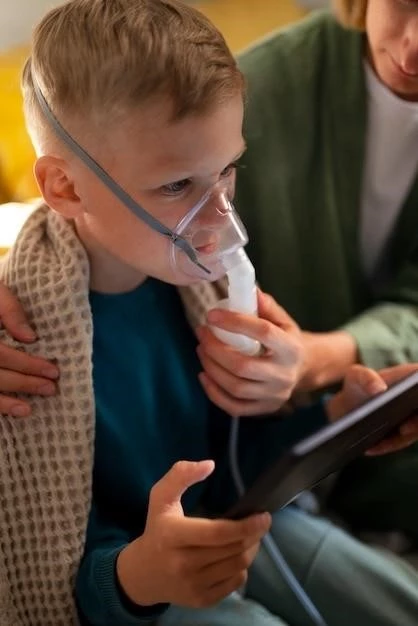Overview of Cantu–Sanchez–Corona–Fragoso Syndrome
This section provides an in-depth overview of Cantu–Sanchez–Corona–Fragoso Syndrome, covering its various aspects and implications.
Introduction to Cantu–Sanchez–Corona–Fragoso Syndrome
The Cantu–Sanchez–Corona–Fragoso Syndrome is a rare genetic disorder characterized by a range of symptoms affecting multiple systems of the body. This syndrome is caused by specific genetic mutations that result in the overactivation of certain pathways in the body, leading to the observed clinical features. Individuals with this syndrome may experience cardiovascular abnormalities, skeletal anomalies, distinctive facial features, and other associated health issues. Understanding the genetic basis and clinical manifestations of Cantu–Sanchez–Corona–Fragoso Syndrome is crucial for accurate diagnosis and appropriate management of affected individuals. Research into this syndrome continues to expand our knowledge and improve therapeutic approaches for those living with this condition.

Genetic Causes of Cantu–Sanchez–Corona–Fragoso Syndrome
This section delves into the specific genetic mutations associated with the development of Cantu–Sanchez–Corona–Fragoso Syndrome.
Key Genetic Mutations Associated with the Syndrome
The Cantu–Sanchez–Corona–Fragoso Syndrome is primarily linked to mutations in the ABCC9 gene٫ which encodes a protein involved in potassium channel regulation. These mutations lead to dysregulation of potassium channels٫ resulting in abnormal cell function and the characteristic features of the syndrome. In addition٫ alterations in other genes such as KCNJ8 may also contribute to the pathogenesis of the syndrome. Understanding these key genetic mutations is essential for diagnosing individuals with Cantu–Sanchez–Corona–Fragoso Syndrome and developing targeted treatment strategies to alleviate symptoms and improve quality of life.
Symptoms of Cantu–Sanchez–Corona–Fragoso Syndrome
This section outlines the diverse range of clinical manifestations associated with Cantu–Sanchez–Corona–Fragoso Syndrome.
Common Signs and Symptoms
Individuals with Cantu–Sanchez–Corona–Fragoso Syndrome may present with a variety of symptoms, including cardiovascular abnormalities such as enlarged heart chambers and high blood pressure. Skeletal anomalies like thickened bones and joint hypermobility are also common. Distinctive facial features, such as a prominent forehead and a wide nasal bridge, can be observed in affected individuals. Additional symptoms may include excessive hair growth, sweating, and developmental delays. Understanding and recognizing these common signs and symptoms are crucial for early diagnosis and management of Cantu–Sanchez–Corona–Fragoso Syndrome.
Treatment Options for Cantu–Sanchez–Corona–Fragoso Syndrome
This section explores the current approaches and interventions available for managing Cantu–Sanchez–Corona–Fragoso Syndrome.
Current Approaches to Managing the Syndrome
The management of Cantu–Sanchez–Corona–Fragoso Syndrome typically involves a multidisciplinary approach to address the diverse symptoms and complications associated with the condition. Treatment strategies focus on symptom management, supportive care, and addressing specific organ involvement. Individuals may benefit from regular monitoring of cardiac and skeletal health, as well as pharmacological interventions to manage symptoms like hypertension. Genetic counseling plays a crucial role in understanding the hereditary nature of the syndrome and its implications for affected individuals and their families. Ongoing research and collaboration among healthcare professionals are essential for refining treatment approaches and improving outcomes for individuals with Cantu–Sanchez–Corona–Fragoso Syndrome.
Research Advances in Cantu–Sanchez–Corona–Fragoso Syndrome
This section highlights recent developments in understanding and treating Cantu–Sanchez–Corona–Fragoso Syndrome.
Recent Developments in Understanding and Treating the Syndrome
Recent research in Cantu–Sanchez–Corona–Fragoso Syndrome has focused on enhancing our comprehension of the underlying genetic mechanisms and pathophysiology driving the condition. Advances in genetic sequencing technologies have facilitated the identification of new mutations associated with the syndrome, contributing to improved diagnostic accuracy and personalized treatment strategies. Furthermore, ongoing studies are exploring potential targeted therapies that aim to mitigate specific symptoms and improve overall quality of life for individuals affected by Cantu–Sanchez–Corona–Fragoso Syndrome; These developments underscore the importance of continued research efforts in advancing our understanding and management of this rare genetic disorder.
Rare Diseases⁚ Cantu–Sanchez–Corona–Fragoso Syndrome
This segment delves into the unique placement of Cantu–Sanchez–Corona–Fragoso Syndrome among rare disorders.
Placement of Cantu–Sanchez–Corona–Fragoso Syndrome among Rare Disorders
Cantu–Sanchez–Corona–Fragoso Syndrome is classified as a rare genetic disorder due to its low prevalence in the general population. This condition is infrequently diagnosed and requires specialized medical expertise for accurate identification and management. Its rarity underscores the importance of raising awareness among healthcare professionals and promoting collaborative research efforts to advance our understanding of this complex syndrome. By acknowledging its status among rare disorders, we can improve diagnostic capabilities, enhance treatment options, and ultimately improve outcomes for individuals living with Cantu–Sanchez–Corona–Fragoso Syndrome.
Cantu–Sanchez–Corona–Fragoso Syndrome in Children
This section delves into the impact of Cantu–Sanchez–Corona–Fragoso Syndrome on pediatric patients.
Impact of the Syndrome on Pediatric Patients
Cantu–Sanchez–Corona–Fragoso Syndrome can have significant implications for pediatric patients, affecting their physical health, cognitive development, and overall quality of life. Children with this syndrome may experience delays in motor skills development, speech and language difficulties, and challenges related to social interactions. The distinctive features of the syndrome, such as facial characteristics and skeletal abnormalities, can also impact a child’s self-esteem and psychological well-being. Early diagnosis, comprehensive medical care, and multidisciplinary support are crucial in addressing the complex needs of pediatric patients with Cantu–Sanchez–Corona–Fragoso Syndrome and promoting their optimal growth and development.
Living with Cantu–Sanchez–Corona–Fragoso Syndrome
This section explores the quality of life and coping strategies for individuals managing Cantu–Sanchez–Corona–Fragoso Syndrome.
Quality of Life and Coping Strategies for Individuals with the Syndrome
Living with Cantu–Sanchez–Corona–Fragoso Syndrome can present challenges that impact the quality of life of affected individuals. Developing effective coping strategies, seeking emotional support, and accessing appropriate medical care are essential aspects of managing the syndrome. Education about the condition, fostering positive relationships with healthcare providers, and engaging in supportive communities can enhance the overall well-being of individuals with Cantu–Sanchez–Corona–Fragoso Syndrome. Emphasizing holistic care approaches and promoting self-care practices can empower individuals to navigate the complexities of the syndrome and improve their resilience in coping with its physical and emotional effects.
